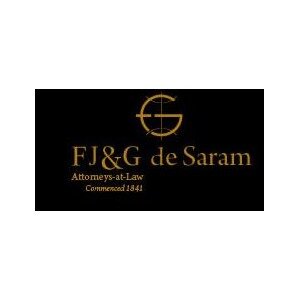Best Inheritance Law Lawyers in Sri Lanka
Share your needs with us, get contacted by law firms.
Free. Takes 2 min.
Or refine your search by selecting a city:
List of the best lawyers in Sri Lanka
1. About Inheritance Law in Sri Lanka
Inheritance law in Sri Lanka governs how a deceased person’s assets are distributed. It covers two main paths: testate succession when there is a valid will, and intestate succession when there is no will. The outcome depends on religious personal laws for some communities and on broad civil law rules for others.
For many Sri Lankans, the probate or administration of estates is handled through courts with support from legal counsel. The process includes validating a will, appointing an executor or administrator, identifying heirs, and distributing assets in line with the applicable law. Understanding who has a right to an estate requires careful consideration of family relationships, debts, and property types.
Key terms you may encounter include probate, letters of administration, and intestate succession. A solicitor or attorney can explain how these concepts apply to your case and help you navigate regulatory requirements. Always verify the latest rules with official sources such as LawNet Sri Lanka for current text and updates.
“The Probate Ordinance governs probate and administration of estates in Sri Lanka.”
Source: LawNet Sri Lanka
2. Why You May Need a Lawyer
Inheritance matters in Sri Lanka can be complex and expose you to disputes, delays, or costly mistakes. A lawyer can help you understand your position and protect your rights throughout the process.
- You want to validate a will and obtain probate quickly after a relative dies, to legally transfer ownership of property to beneficiaries.
- You are an heir contesting a will or distribution that seems unfair or wrong under the law, such as unequal shares or missing dependents.
- There is no will and several potential heirs dispute who should inherit, including spouses, children, or parents, raising questions about intestate succession.
- Property is located overseas or involves cross-border assets, requiring guidance on foreign probate procedures and recognition in Sri Lanka.
- Assets include family businesses, agricultural land, or jointly owned properties where ownership structure affects transfer and control.
- You need to set up a trust or a guardianship arrangement for a minor or disabled beneficiary as part of estate planning or administration.
3. Local Laws Overview
The Sri Lankan framework blends statutory law with religious personal laws for inheritance. The following statutes and concepts are frequently involved in practical matters.
Probate Ordinance (In Sri Lanka)
The Probate Ordinance is the primary statute governing probate and administration of estates. It outlines who may apply for probate or letters of administration, the duties of executors and administrators, and procedures for validating wills.
Recent and ongoing reform discussions aim to streamline probate processes and improve access to heirs. For the most current text and amendments, consult LawNet Sri Lanka.
“The Probate Ordinance remains the central framework for probate and administration.”
Source: LawNet Sri Lanka
Muslim Personal Law (Sharia) Application Act
This Act governs inheritance matters among Muslims in Sri Lanka, applying Islamic principles to determine shares and heirs. In practice, courts interpret these rules alongside civil procedures when resolving disputes.
If you are dealing with a Muslim estate, you may encounter questions about shares for spouses, children, and other relatives under Muhammadan law. Always verify current interpretations and procedures with a solicitor familiar with Muslim inheritance issues.
“The Muslim Personal Law (Sharia) Application Act governs inheritance among Muslims in Sri Lanka.”
Source: LawNet Sri Lanka
Kandyan Law, Hindu Law and Other Personal Laws
Kandyan Law and Hindu Law govern inheritance for specific communities in Sri Lanka where customary law applies. These personal laws can affect shares, heirs, and succession patterns in particular family contexts. Courts may apply these customary rules when the deceased’s religion and community fit the criteria.
Because personal law classification depends on religious background and residence, consult a solicitor who can identify the applicable framework in your case. Following official sources will help confirm which law applies to your estate.
Recent practice shows a trend toward clarifying cross-border assets and harmonizing procedures across communities. Check LawNet for current versions of all relevant statutes and practice directions.
4. Frequently Asked Questions
What is probate in Sri Lanka?
Probate is the legal process that confirms a will and appoints an executor to administer the estate. It authorizes the distribution of assets to beneficiaries named in the will.
How do I get letters of administration?
You apply to the appropriate court to appoint an administrator when there is no valid will. The court grants letters of administration to manage and distribute the estate.
Do I need a lawyer to handle probate?
While not always required, a lawyer can help you prepare documents, navigate court procedures, and resolve disputes between heirs. This can reduce delays and errors.
What is the cost of probate in Sri Lanka?
Costs include court filing fees, stamp duties, and professional fees. The exact amounts vary by estate value and district; consult your solicitor for a precise estimate.
How long does probate take in Sri Lanka?
Timelines depend on court workloads and complexity. Typical probate matters may take several months to over a year, with delays common in busy districts.
Do I need to be a relative to apply for probate?
No. The executor or administrator must have a legal interest in the estate, but beneficiaries or legally appointed representatives may pursue probate through the court.
What happens if there is a will but heirs disagree?
Disputes may require court intervention, mediation, or amendments to the will. A lawyer can help you pursue or defend claims and seek a fair resolution.
How do I contest a will in Sri Lanka?
You typically file a challenge in court on grounds such as lack of testamentary capacity, undue influence, or fraud. A lawyer will guide the proof requirements and timelines.
Can I manage an overseas estate from Sri Lanka?
Yes, but cross-border probate involves extra steps, including recognition of foreign probate and dealing with assets abroad. Seek specialized advice.
What is intestate succession in Sri Lanka?
Intestate succession applies when there is no will. Shares are allocated according to applicable personal laws and civil rules, with priority given to spouses, children, and parents in many cases.
How does Muslim inheritance differ from other communities?
Muslim inheritance follows Islamic rules of shares among heirs. There are fixed shares for spouses, children, and other relatives, with some variations based on the presence of male vs female heirs.
Do I need to publish a notice when applying for probate?
Yes, you may need to publish notices to creditors and potential heirs as part of the probate process. This helps prevent later claims on the estate.
5. Additional Resources
- LawNet Sri Lanka - Official online portal hosting legislation, statutes, and practice directions relevant to inheritance matters. Function: provide access to current texts such as the Probate Ordinance and Muslim Personal Law provisions. https://www.lawnet.gov.lk/
- Sri Lanka Bar Association - Professional body offering guidance on legal matters, lawyer referrals, and updates on jurisprudence related to inheritance cases. https://www.sla.org.lk/
- Ministry of Justice Sri Lanka - Government department overseeing judicial policy, reforms, and access to justice, including probate related matters. https://justice.gov.lk/
6. Next Steps
- Gather documents: death certificate, will (if any), asset list, debts, and family details. Time estimate: 1-2 weeks.
- Determine the correct path: probate for wills, letters of administration for intestate estates, and identify the applicable personal law. Time estimate: 1 week for initial assessment.
- Consult a Sri Lankan inheritance law solicitor or attorney for an initial assessment and fee quote. Time estimate: 1-2 weeks to schedule a consultation.
- Draft a plan with your attorney outlining steps, timelines, and cost ranges. Time estimate: 1-2 weeks after the initial consult.
- Prepare and file required documents with the appropriate court or probate registry. Time estimate: 2-6 weeks depending on district and complexity.
- Notify potential heirs and creditors as required; consider mediation for disputes when possible. Time estimate: ongoing during administration.
- Monitor progress, respond to court requests, and distribute assets as authorized. Time estimate: 3-12 months or longer, varying by case.
Lawzana helps you find the best lawyers and law firms in Sri Lanka through a curated and pre-screened list of qualified legal professionals. Our platform offers rankings and detailed profiles of attorneys and law firms, allowing you to compare based on practice areas, including Inheritance Law, experience, and client feedback.
Each profile includes a description of the firm's areas of practice, client reviews, team members and partners, year of establishment, spoken languages, office locations, contact information, social media presence, and any published articles or resources. Most firms on our platform speak English and are experienced in both local and international legal matters.
Get a quote from top-rated law firms in Sri Lanka — quickly, securely, and without unnecessary hassle.
Disclaimer:
The information provided on this page is for general informational purposes only and does not constitute legal advice. While we strive to ensure the accuracy and relevance of the content, legal information may change over time, and interpretations of the law can vary. You should always consult with a qualified legal professional for advice specific to your situation.
We disclaim all liability for actions taken or not taken based on the content of this page. If you believe any information is incorrect or outdated, please contact us, and we will review and update it where appropriate.
Browse inheritance law law firms by city in Sri Lanka
Refine your search by selecting a city.
















